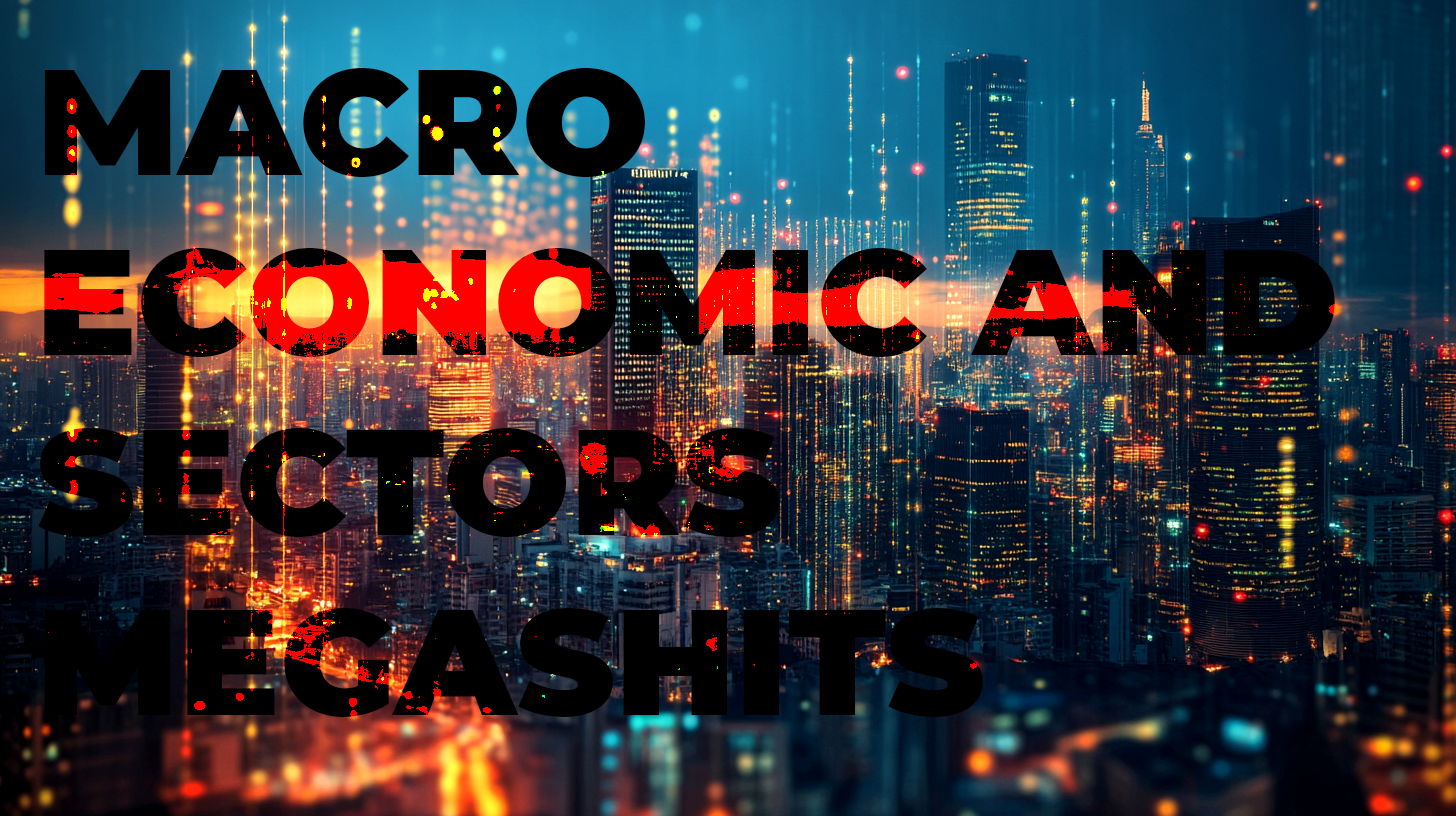
04 Sep (course fully booked) MACRO ECONOMIC AND SECTORS MEGASHIFTS
This course provides a framework for analyzing the global economy and its likely transformation over the coming decade (2025/2035). First, we will examine the past four decades which have been characterized by structuring events such as low inflation, the end of communism and globalization, the massive rise in global liquidity, the rapid development of China and the domination of new technologies. We will place them in a historical context and will explore how the economic paradigm of the last 4 decades is now being tested and why the coming years will likely bring significant structural shifts. The world is at a crossroads, facing multiple transformations/crises that demand resolution—on a scale comparable to the Industrial Revolutions and/or the 2 World Wars.
We can see that the world economies are at the confluence of major change/crisis such as climate, economic, financial/debt, relationship between nations/large blocs/civilizations, technology, social, demographic on a scale that we have not seen for a long time. These transformations are likely to have direct and brutal consequences on most macro metrics such as inflation, real rates, valuations of assets such as commodities, equities, bonds and real estate. It is all these matters that I propose to discuss over the next 6 seminars.
1. Introduction: presentation of current structural imbalances/excesses (sovereign debt, east/west fx, global trade, precious metals, energy transition/fossil fuel, corporates roce, inequalities, ageing population/health’s systems, teck transformation AI/humanoids etc)
2. Asymmetric capitalism: analysis of the conundrum in the western world between high corporate return on capital employed, high level of sovereign debt and massive inequalities.
3. Financial repression in a world characterized by high levels of debt: the era of negative cost of capital, consequences for precious metals, debt markets and equities
4. Gold as the ultimate currency: the end of monetary disorder created in 1971. The era of low inflation and stable foreign exchange is ending, as trade relationships fragment into regional blocs.
5. The transition to sustainable energy and the end of the fossil fuel era. Advanced technology/industrial equipment, reshape entire industries and massively impact energy prices.
6. Demographic changes, combined with the rise of artificial intelligence and automation, will transform not just economies but society as a whole. The arrival of the humanoid world.
7. Countries/sectors/stocks valuations and analysis in a rapidly changing world. How mega shifts/megatrends can impact earnings and valuations.
DIDIER RABATTU
Didier Rabattu has worked in the financial industry for almost the last 40 years mostly in international investment banks such as SG Warburg, Deutsche Bank and now at Lombard Odier. He started as an analyst then ran a research group specializing in global consumer and retail. He subsequently led the M&A practice in the consumer field. Over the last ten years he has served as CIO at Lombard Odier specializing in equities and large macro trends such as energy transition. Didier is a limited partner at Lombard Odier.

Skills
The objective of the course is to provide students with the necessary resources to decipher and understand current economic, financial and industrial trends and ultimately to prepare them to be able to make competent investment decisions in a complex, rapidly-changing world.
Schedule
Which dates?
18-sep
25-sep
02-oct
09-oct
02-oct
23-oct
What day?
THURSDAYS
What time?
16.30-18.00
